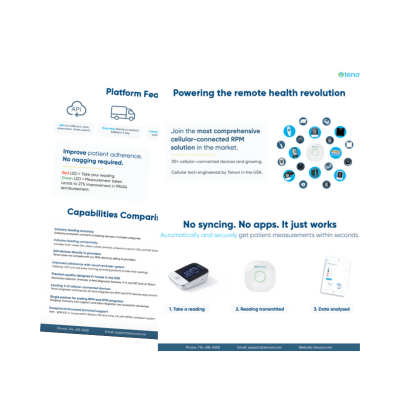Remote therapeutic monitoring (RTM) is widely used for musculoskeletal and respiratory conditions to track symptoms, medication adherence, and responses to treatment therapies. In outpatient behavioral health, RTM is used as a tool for tracking and improving medication adherence in schizophrenia and supporting cognitive behavioral therapy (CBT). This article explores the research and potential of remote therapeutic monitoring of schizophrenia and managing medication adherence in schizophrenia with smart pillbox technology.
Remote Therapeutic Monitoring of Schizophrenia
Medication nonadherence can be a significant challenge in schizophrenia management, with rates ranging from 26.5% to 85.1%. Nonadherence in schizophrenia patients can result in distress, symptom relapse, rehospitalization, and increased mortality and morbidity. Studies show that failing to follow prescribed regimens is associated with higher rates of psychotic episodes and functional decline.
Conversely, medication adherence reduces rehospitalization risks, improves physical health, enhances quality of life, and lowers healthcare costs. Remote therapeutic monitoring of schizophrenia helps address these concerns, using digital tools to track medication adherence and provide data to a provider for timely intervention.
Traditional strategies for improving adherence, such as patient and family education, motivational interviewing, and cognitive and behavioral approaches, have shown limited success. Advancements in remote therapeutic monitoring device technology, including smart pillboxes and mobile applications, offer new and improved medication adherence strategies for schizophrenia.
The following sections will explain a smart pillbox and how it can be used with remote therapeutic monitoring for improved medication adherence in schizophrenia.
Smart Pillboxes for Remote Therapeutic Monitoring of Schizophrenia
Smart pillboxes such as the Tenovi Pillbox are an example of RTM’s potential to enhance medication adherence in schizophrenia. These Bluetooth devices track adherence by recording when a compartment is closed or refilled. The event data is then transmitted through a cellular network to healthcare providers for monitoring and intervention.
A pilot study among primary care patients evaluated the acceptability of smart pillboxes. The research showed that 70.6% of participants expressed interest in using one. Patients who had a history of missed doses were 2.4 times more likely to express interest in using one. Patients taking multiple medications daily were also more willing to use one.
A smart pillbox provides real-time data on patient behaviors to enable timely interventions that can reduce symptom relapse and improve overall outcomes. Healthcare providers can bill for these services using specific CPT codes to support digital medication adherence tools in remote therapeutic monitoring.
The following section explains how CPT codes work.
RTM CPT Codes and Medication Adherence in Schizophrenia
Remote therapeutic monitoring uses five billing codes that allow reimbursement for monitoring services, such as medication adherence in schizophrenia. These codes cover activities like patient adherence tracking and therapy response monitoring. By addressing medication adherence in schizophrenia through RTM, these codes provide a structured framework for integrating advanced digital solutions into behavioral health management.
The requirements for billing are outlined below.
- Device Requirements: RTM devices must be FDA listed to qualify for reimbursement.
- Billing Frequency: Codes are billable once every 30 days.
- Coverage Variability: Reimbursement rates depend on payer policies, requiring prior verification.
- Integration with CBT: Medicare permits CPT code 98978 to be billed alongside RTM services for CBT, covering device-related costs but not therapist interactions or data analysis.
Understanding Remote Therapeutic Monitoring of Schizophrenia
Remote therapeutic monitoring of schizophrenia represents a proactive, data-driven approach to the persistent challenge of medication non-adherence in behavioral health. A smart pillbox allows healthcare providers to monitor adherence in real time so they can make timely interventions to reduce the risk of symptom relapse and rehospitalization. Beyond tracking medication use, RTM provides valuable insights into behavioral patterns to aid in personalizing care plans.
The use of CPT codes for reimbursement establishes a clear framework for incorporating RTM devices into standard CBT care practices. As the evidence base for RTM grows, its application in schizophrenia management is expanding.


